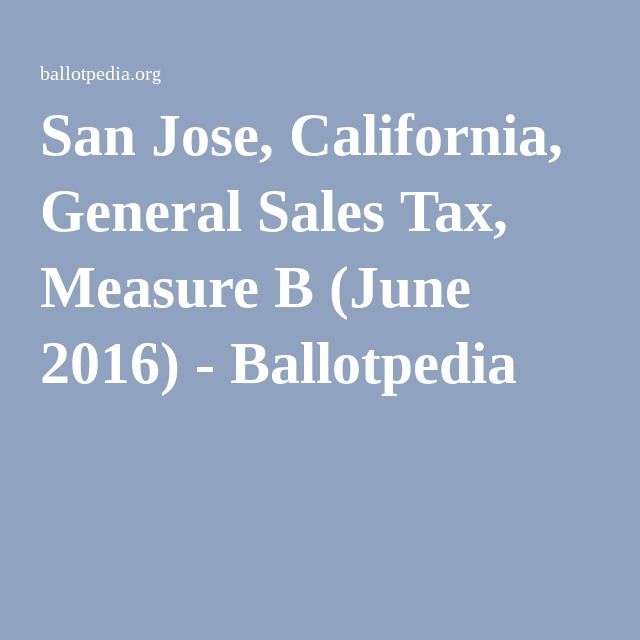5 Key Tips for San Jose Sales Tax Compliance

Navigating the complexities of sales tax compliance in San Jose, California, requires a strategic approach to avoid costly penalties and ensure smooth business operations. With its unique regulations and frequent updates, staying ahead of the curve is essential for businesses of all sizes. Here are five key tips to help you master San Jose sales tax compliance, backed by expert insights and practical strategies.
1. Understand San Jose’s Unique Sales Tax Landscape

San Jose’s sales tax rate is currently 9.375%, which includes state, county, and city taxes. However, this rate can vary based on specific districts and special tax jurisdictions. For instance, areas within the Santa Clara Valley Transportation Authority (VTA) may have additional taxes.
To ensure compliance, start by verifying the exact rate applicable to your business location using the California Department of Tax and Fee Administration (CDTFA) tax rate lookup tool. This step is crucial because applying the wrong rate can lead to audits and financial penalties.
Key Takeaway: Always confirm the current sales tax rate for your specific San Jose location to avoid errors in tax collection and remittance.
2. Register for a Seller’s Permit Promptly

Step 1: Determine if your business activities require a seller’s permit. In California, if you sell tangible personal property, you are generally required to register.
Step 2: Apply for the permit through the CDTFA website. The process is straightforward but requires accurate business information.
Step 3: Display your seller’s permit at your place of business, as required by law.
Failure to register can result in fines and interest on unpaid taxes. Additionally, unregistered businesses may face difficulties in obtaining necessary licenses and permits from local authorities.
Pro: Registering early ensures legal compliance and avoids penalties.
Con: The registration process requires detailed business information, which can be time-consuming.
3. Stay Updated on Taxable vs. Non-Taxable Items
| Taxable Items | Non-Taxable Items |
|---|---|
| Clothing and accessories | Groceries (unprepared food) |
| Electronics and appliances | Prescription medications |
| Furniture and home goods | Medical devices |

California’s sales tax laws can be nuanced, particularly regarding services and digital goods. For example, software delivered electronically may be taxable, while consulting services are generally not. Regularly review the CDTFA’s guidelines to ensure accurate tax application.
Expert Tip: Use taxability matrices or consult a tax professional to clarify any uncertainties about specific products or services.
4. Implement Robust Record-Keeping Practices
Maintaining detailed sales records is non-negotiable for compliance. California law requires businesses to keep sales tax records for at least four years. These records should include invoices, receipts, exemption certificates, and tax returns.
Utilize accounting software that integrates sales tax calculations and reporting. Tools like QuickBooks or Xero can automate much of this process, reducing the risk of human error. Additionally, regularly reconcile your records to identify and correct discrepancies promptly.
Step 1: Organize all sales transactions by month and category.
Step 2: Cross-reference sales data with tax returns to ensure accuracy.
Step 3: Store records digitally and physically for easy access during audits.
5. File and Remit Taxes on Time

Late filings and payments can result in penalties of up to 10% of the tax due, plus interest. San Jose businesses must adhere to California’s filing schedules, which are typically monthly, quarterly, or annually, depending on sales volume.
Set up calendar reminders or use automated systems to ensure timely submissions. If your business experiences cash flow issues, consider requesting an installment agreement with the CDTFA to avoid compounding penalties.
Pro: Timely filings maintain good standing with tax authorities.
Con: Penalties for late payments can quickly escalate, impacting profitability.
Navigating Audits and Disputes
"Being prepared for a sales tax audit is as important as filing your taxes correctly," says tax attorney Emily Carter. "Keep all documentation organized and be transparent with auditors to minimize potential issues."
If your business is selected for an audit, cooperate fully with CDTFA representatives. Provide requested documents promptly and consider hiring a tax professional to represent your interests. In cases of disputed assessments, you have the right to appeal the decision through the CDTFA’s formal protest process.
How often should I file sales tax returns in San Jose?
+Filing frequency depends on your annual sales volume. The CDTFA will notify you of your filing schedule after registration, which can be monthly, quarterly, or annually.
Are there any sales tax exemptions for small businesses in San Jose?
+While there are no specific exemptions for small businesses, certain items like groceries and prescription medications are exempt from sales tax statewide.
What happens if I collect the wrong sales tax rate?
+If you collect more than the required rate, you must refund the excess to customers. If you collect less, you are responsible for paying the difference to the CDTFA.
Can I use sales tax software to manage compliance?
+Yes, many businesses use sales tax software like Avalara or TaxJar to automate calculations, filings, and record-keeping, reducing the risk of errors.
How can I prepare for a sales tax audit in San Jose?
+Organize all sales records, exemption certificates, and tax returns. Consider consulting a tax professional to ensure compliance and represent your business during the audit.
Conclusion
Mastering sales tax compliance in San Jose requires a proactive approach, from understanding local tax rates to maintaining meticulous records. By following these five key tips, businesses can navigate the complexities of California’s tax landscape with confidence. Stay informed, leverage technology, and seek professional guidance when needed to ensure long-term compliance and avoid unnecessary penalties.
Final Thought: Sales tax compliance is not just a legal requirement—it’s a critical component of your business’s financial health and reputation.



